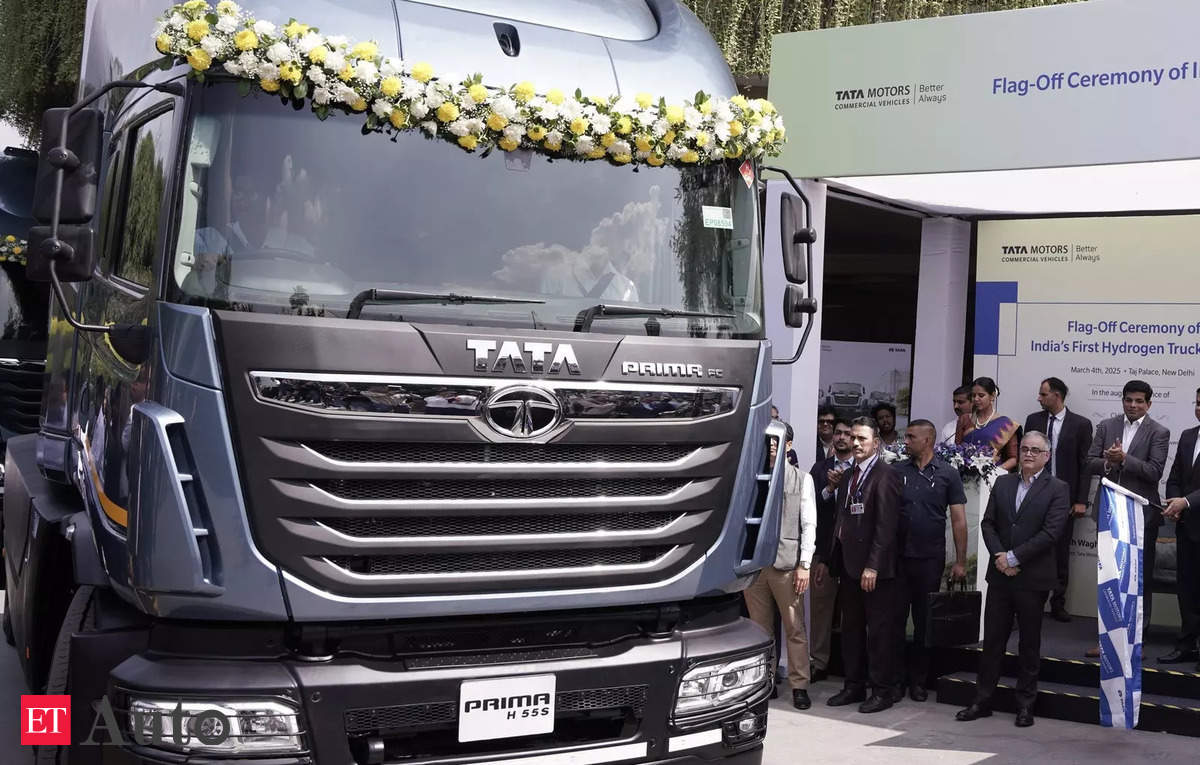Tata Motors Pushes for Hydrogen-ICE Technology Inclusion in PLI Scheme
Key Ideas
- Tata Motors aims to achieve carbon neutrality in the commercial vehicle sector by 2045 and is advocating for the inclusion of hydrogen-ICE technology in the Production-Linked Incentive (PLI) scheme.
- Hydrogen-ICE technology offers benefits over fuel cell EVs for heavy-duty applications, as it can operate with lower-grade hydrogen and utilize existing infrastructure, potentially reducing costs and enhancing feasibility.
- The Indian government's focus on net-zero emissions by 2070 aligns with Tata Motors' sustainability goals, with the company participating in trials for hydrogen-powered heavy-duty trucks funded by the Ministry of New and Renewable Energy.
- The PLI scheme, with a budget of over Rs 25,000 crore, aims to bolster manufacturing capabilities in Advanced Automotive Technology (AAT) products, with key players like Mahindra & Mahindra and Tata Motors already benefiting from the incentives.
Tata Motors has put forth a proposal to introduce hydrogen-internal combustion engine (H2-ICE) technology under the Production-Linked Incentive (PLI) scheme to accelerate the shift towards sustainable transportation. The company's president emphasized the advantages of H2-ICE over traditional battery electric vehicles, especially for heavy-duty long-haul commercial applications. By leveraging the lower-grade hydrogen and existing infrastructure compatibility of H2-ICE, Tata Motors aims to enhance operational feasibility while contributing to environmental sustainability.
In pursuit of carbon neutrality in the commercial vehicle segment by 2045, Tata Motors has embarked on trials of hydrogen-powered heavy-duty trucks. These trials, supported by the Ministry of New and Renewable Energy's National Green Hydrogen Mission, seek to evaluate the commercial viability and infrastructure requirements for hydrogen-powered vehicles over long distances. The company's participation in these trials aligns with India's broader goal of achieving net-zero emissions by 2070.
The article also highlights the implementation of the PLI scheme, designed to promote manufacturing capabilities in Advanced Automotive Technology (AAT) products. With a substantial budget allocation and a focus on incentivizing production growth, the scheme aims to address cost challenges, enhance supply chain efficiency, and boost the adoption of sustainable automotive technologies. Key industry players like Mahindra & Mahindra and Tata Motors have already availed of the incentives under the PLI scheme, affirming its role in driving innovation and sustainability within the automotive sector.
Topics
Cities
Net Zero Emissions
Electric Vehicles
Commercial Vehicles
Carbon Neutrality
Supply Chain
Government Initiative
Automotive Technology
Production Linked Incentive
Latest News
